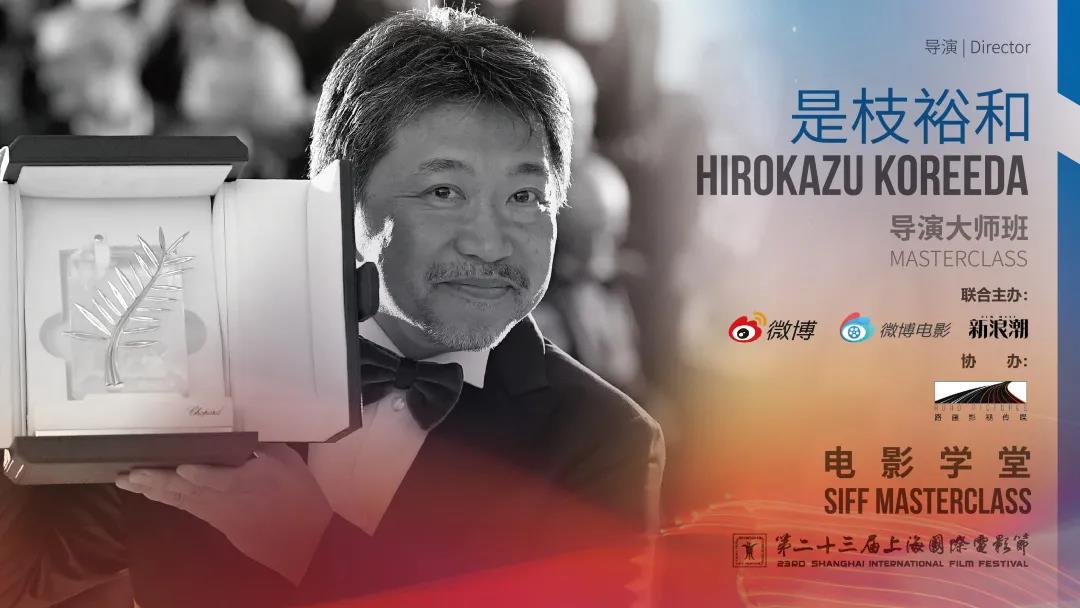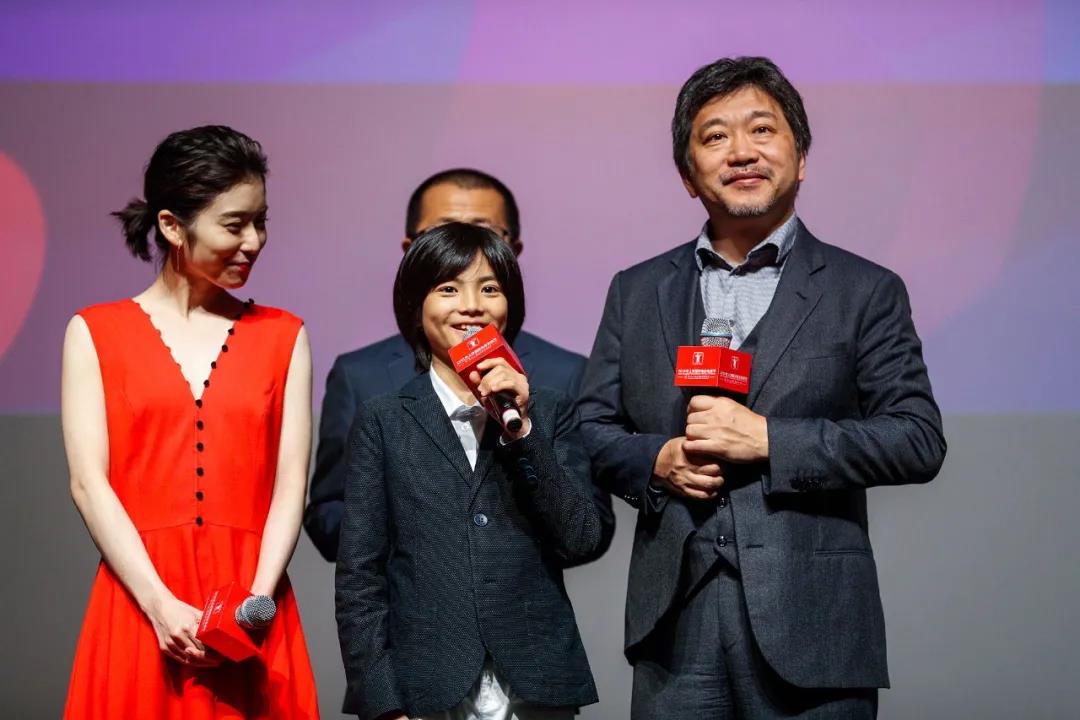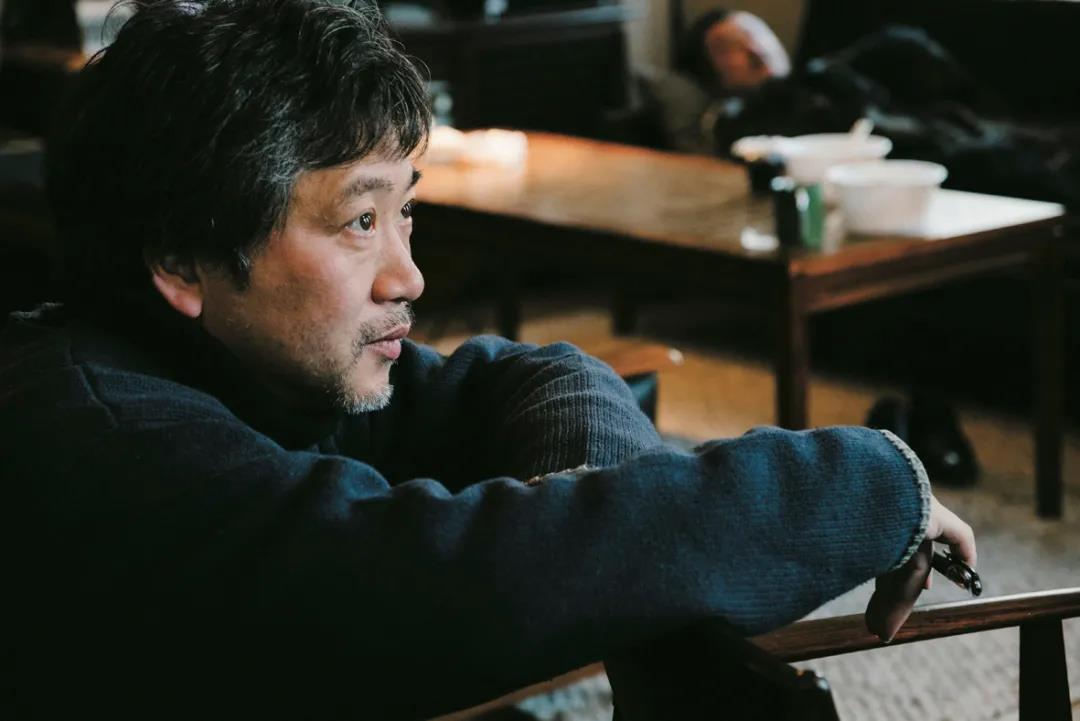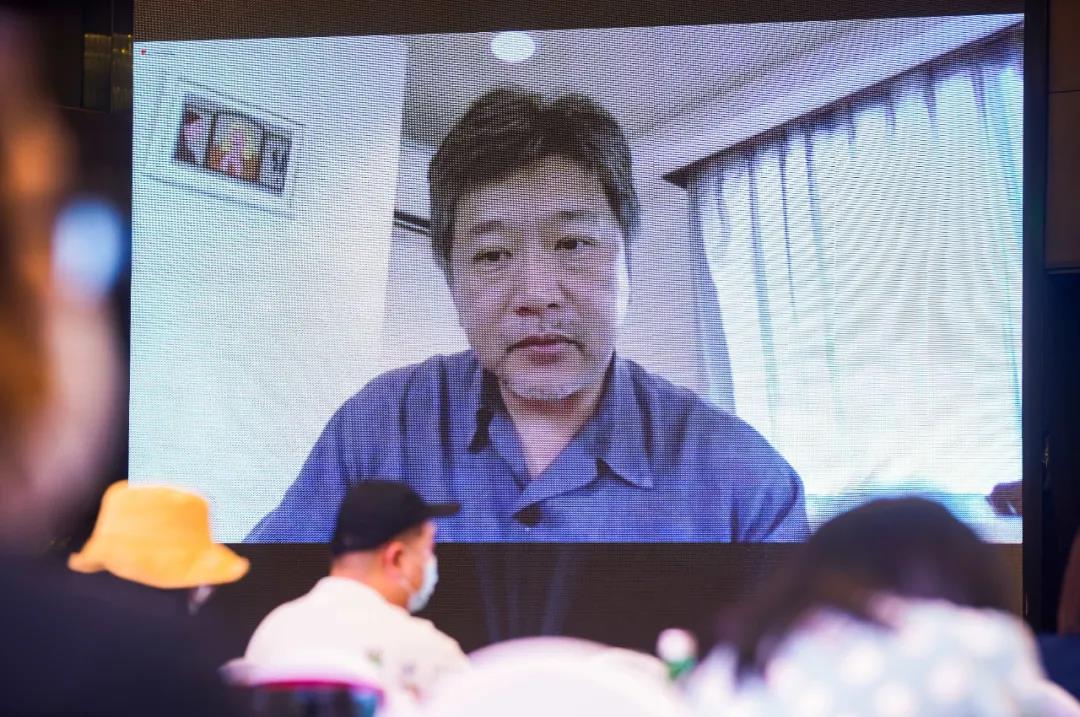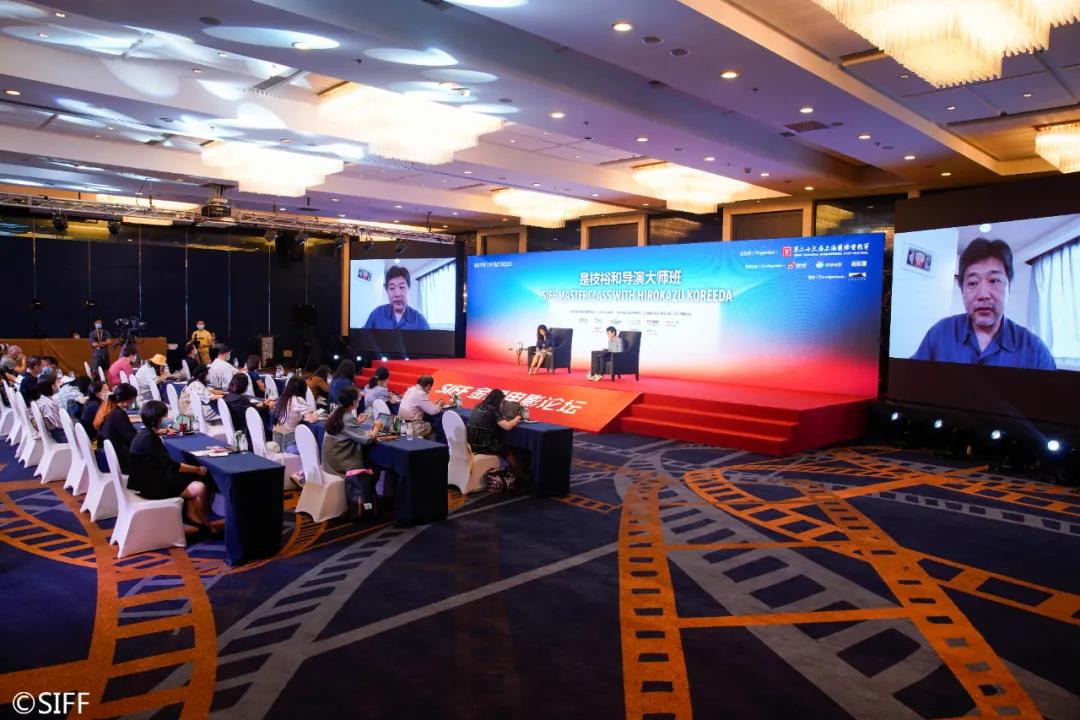2020-08-02
Master Class|Hirokazu Koreeda: To Present Invisible Things Perceived by Others
Today is the last day of the 23rd SIFF. Master Class invites Japanese director Hirokazu Koreeda via video connections. For Chinese viewers, Hirokazu Koreeda is a well-known director. His films, e.g. After Life, Nobody Knows, Still Walking, Like Father, Like Son, After the Storm, Our Little Sister, and The Third Murder, have a lot of fans in China. In 2018, Hirokazu Koreeda won the Golden Palm award at the 71st Cannes Film Festival relying on Shoplifters. The latest film directed by Hirokazu Koreeda is “The Truth”, a French film starred by Catherine Deneuve, Juliette Binoche and Ethan Hawke, and it is shortlisted for the main competition of the 76th Venice Film Festival.
The 21st Shanghai International Film Festival
Golden Palm Winner “Shoplifters” Fans Meeting
Hirokazu Koreeda is also an old friend for Shanghai International Film Festival. His films have always been the most sought-after for screening units. In 2018, Hirokazu Koreeda brought the Golden Palm Award winner “Shoplifters” to the 21st Shanghai International Film Festival. Although the director was unable to attend the SIFF this year due to the COVID-19 outbreak, “The Truth” was still brought to the SIFF as promised.
Shift the Perspective from Families to Society
In 2004, 42-year-old Hirokazu Koreeda launched “Nobody Knows”, a film viewing the adult world from a child’s perspective. Later, his parents died, his daughter was born, and his films began to shift from the perspective of children to the perspective of parents and family. From the family gathering in “Still Walking” to the boys switched at birth in “Like Father, Like son”, to the life of four sisters in “Our Little Sister”, and to the blended family in “Shoplifters”, most of Hirokazu Koreeda’s films are about family life, but the perspectives are not exactly the same. He said, “I was not trying to make this change. A filmmaker’s film shooting perspective often changes as his age and family condition change. In my opinion, this is a very interesting change.”
When Hirokazu Koreeda was asked about whether his family films at 60+ years old would be different, he said frankly that he had no idea and the opportunities for a change in his films didn’t only consist in his age. Besides, he said, “in terms of the theme, you might feel that I become increasingly willing to shoot films themed on social topics over a period of time. Before that, my films were focused on family life, e.g. stories happened in a community or a family. However, from The Third Murder, I began to pay more attention to sociality, and my shooting perspective changed accordingly.”
The “sociality” Hirokazu Koreeda was talking about was not simply about keeping up with current events, but meant that he hoped that his films could contain more reflections. He joked that his responses to events were slow, because he needed time to digest them. He said, “In 2001, a tragic earthquake struck Japan. Until now, I have not fully digested this event. So does the COVID-19 outbreak. It’s still years from having real impact on my films. In this course, I would constantly show the things that are invisible but can be perceived in daily life through my films.”
Enjoy Creating Characters with Actors
Hirokazu Koreeda made his debut with a documentary film. From his story films such as “Nobody Knows” and “Shoplifters”, viewers could feel the style and theme of a documentary film. Hirokazu Koreeda said, “I view the documentary film as a shooting method, other than a film type. Through shooting documentary films, I find that the things in my mind are much less complicated than the real world and the real people. So, I’m more inclined to the mode of co-creation. To be frank, I prefer discovering and creating characters with actors to asking actors to play the roles in my mind. This mode is very common in the shooting of documentary films. I will continue to use this mode in future.”
Kiki Kirin, a famous deceased Japanese actress, starred Hirokazu Koreeda’s 6 films such as “Still Walking”, “After the Storm” and “Shoplifters”. Fans have always talked excitedly about the close relations of cooperation in the film industry. Hirokazu Koreeda said, “for me, Ms. Kiki Kirin is an indispensable partner at work. In fact, she is a serious and strict person. If I do badly in my work, she will see through it immediately. We’re all the same. If we’re dissatisfied with someone, we will no longer want to get in touch with him or talk to him. So does Kiki Kirin. I don’t want to hear she say ‘I don’t want to cooperate with the director any longer’. So, I work very hard every day.”
The “co-creation” Hirokazu Koreeda was talking about was especially effective for mature actors such as Kiki Kirin, but for child actors, this was another style. In 2004, Yuya Yagira, a 14-year-old actor, won the Best Actor award in the main competition of the 57th Cannes International Film Festival relying on “Nobody Knows”, and became the youngest Cannes winner for the Best Actor award. For this reason, Hirokazu Koreeda was widely recognized as being good at shooting children’s performance. Nevertheless, Hirokazu Koreeda didn’t believe that he was good at shooting children’s performance; on the contrary, in his opinion, he often met new challenges, because every child was different and faced different problems, and there was no referential experience other than patience. He said, “in my opinion, talent is not so important for shooting children’s performance, and what’s more important is patience.”
Responsibility for and Reflections on Japan’s Film Industry
“The Truth”, a new film directed by Hirokazu Koreeda, is shot in France. This is also the first foreign language film directed by Hirokazu Koreeda. The shooting experience is completely different from his work experience in Japan. Hirokazu Koreeda said, “when I shoot a film in Japan, our crew is like a big family. All crew members need to sleep and eat under the same roof, and even need to sacrifice sleep to work. However, during the film shooting in France, all actors had their own working time. For example, Catherine Deneuve worked 8 hours a day and required to finish filming before supper. So, all cast and crew members respectively went home for supper. The film shooting mode in Japan is a heavy burden for all cast and crew members. But in France, one of our crew members was a single mother, who went to the kindergarten to pick up his child after work every day and led a normal life. This might be something worth learning. In Japan, we also hope to learn from the film shooting mode in France, and we need to change our film shooting environment.”
When speaking of Japanese films, Hirokazu Koreeda showed the sense of responsibility of a predecessor in the film industry. He believed that Japan’s film industry was at a crossroads, and many problems existing in the industry were exposed due to the COVID-19 outbreak. In his opinion, all Japanese filmmakers should work together. The other two directors, i.e. Koji Fukada and Nobuhiro Suwa, also had the same thoughts. The three directors often exchanged views and explored countermeasures on this.
Hirokazu Koreeda is not only a director, but also a screenwriter. For the past ten years, he has also been active as both a film producer and a Master Class supervisor. He has invested a lot of time and effort in training and helping young filmmakers. Hirokazu Koreeda said, “in Japan, there are very few directors who would do that. Besides, there is no perfect film education system in Japan. Through helping young people, I could find inheritors and learn from excellent young people.”

